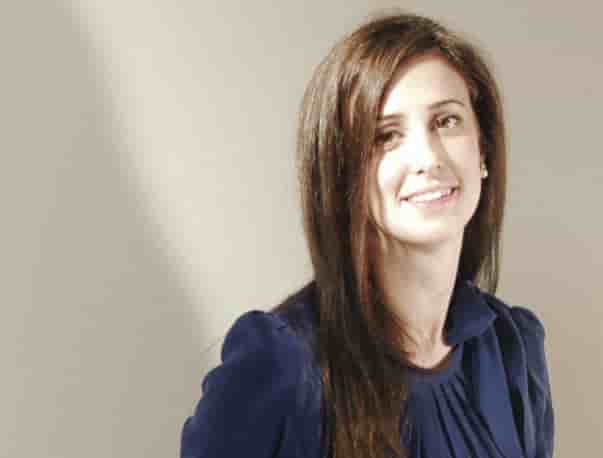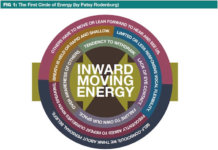Interview with Noor El Solh, Managing Director Strategy, Depa
Depa is the largest interior contracting company in the world. Amongst a range of capabilities, the company is tasked with transforming the concrete steel structures of building sites into habitable and aesthetically pleasing residences and office buildings. Depa has worked on various major projects in Dubai, which include the Dubai International Airport, Dubai’s metro stations and hospitals as well as multiple residential and commercial spaces.
The company was founded 17 years ago by Mohannad Izzat Sweid who today remains at the helm as CEO. Depa has managed to differentiate itself as an industry leader by applying the same focus that enabled its initial growth. Headquartered in Dubai, the company now operates in Singapore, Angola, Azerbaijan, the US, the Middle East and a host of additional countries in both Europe and Asia.
Seven years ago, Sweid’s daughter, Noor El Solh joined the company at a time when Depa’s state was much different from what it is presently. Originally intending to support her family for a few months, Noor El Solh applied her business acumen and experience as a consultant and uncovered a new order of possibilities, which would take the company to the next level. In 2008, Depa went public on the Nasdaq Dubai and the London Stock Exchange and has since leveraged the achievement to increase its global foot print as well as exponentially grow the company’s turnover ratio. Depa’s global vision is continuing to pay dividends, now represented in sixteen countries by 8,000 employees. Tharawat magazine spoke to Noor El Solh, Depa’s Managing Director of Strategy, about the changes in external communication her family business experienced after going public and the effect they are having on Depa as a brand.
How would you described the process of listing Depa on the Nasdaq Dubai?
In 2005 we were evaluating external financing options. The initial intent was to go back to the investment bank that had made the first private placement and raise more capital from them. I put in the idea of strategic partners and a variety of investors instead. Having commitments for one billion AED, we raised over 450 million through private placements. After this, one of the first things we did was to put together a board of directors, which included independents, some of the new strategic shareholders and some of the old founders.
After two years, we had invested most of the money raised, and we started eyeing an IPO. We had implemented a strategic plan aiming to globalise the company. Seven years later our revenues have increased tenfold and we are globally represented. It was an interesting journey for me to lead the IPO and to strengthen our brand.
How did Depa manage external communication before going public?
Before we were listed, we communicated on a need-to-know basis: If it helped the brand we would communicate it and if it didn’t we did not release information. Our clients are also a consideration; often it took a long time to agree with them on what should be communicated to the public. Sometimes it wouldn’t be worth our while to go through that process.
During the twelve months before the IPO, we had to go through a challenging brand building exercise. We hired a well-reputed PR company to help us with this. The external communication was very much focused around brand building which was crucial to the success of our IPO.
Then, post-IPO, external communication clearly becomes more about compliance and governance whereby the good as well as the bad has to be issued. It’s all about transparency, making sure people understand the company and keeping them in the loop of our ongoing story.
The last few years have been difficult for everybody as we are at the end of the value chain in real estate development. We face in 2012 what construction companies faced in 2010. I think that external communication becomes key in such situations. If you stay quiet, people assume the worst. It’s best to go out with a strong statement that sets minds at ease, explains what’s happening and makes sure people understand what is going on. You need positive PR and external communication; when you get projects you announce them. Of course, from a compliance perspective, we have to meet certain requirements but people do need to hear some positive news as well. A balance in external communication is what you need to focus on.

Has Depa’s growth required any changes from your employees?
In terms of operations and the way that employees feel within the company the IPO didn’t change much. A large reason for that is because we implemented high standards of corporate governance and operational policies and procedures before going public. We spent a lot of time ensuring that the company is operated properly, regardless of who is sitting in the CEO seat. You can’t grow a company if everyone is conducting business their own way.
Once we reached the IPO phase, it became important that we communicate internally. It wasn’t so much about what’s being communicated externally, it was to make sure that nobody hears anything from the market before hearing it internally. When the staff hears something from external sources, they may feel bitterness towards senior management. It’s quite embarrassing to hear stories and events from outside the company about things going on inside your own company. Internal communication does become incredibly important when you’re public.
How do internal and external communication affect one another?
I do not think that either implies the other. You can have good external communication and have weak internal communication, but I think that this causes problems. In other cases, you can have very strong internal communication and yet meet with bad PR and a lack of abiding by compliance requirements, which causes external problems.
How would you characterise external communication in family businesses?
I think that much external communication in our region happens too early. Companies get excited that they’re going to undertake a new project, and they announce it immediately. I think that one key message I have about external communication is “talk about it once it’s done”. Don’t talk about what you’re going to do or what you’re planning to do. Don’t comment. Once you have all your ducks in a row, then go out and say what you’re doing. Because until then things might still change. Be careful about what you say, especially as a family business; your credibility can be destroyed by making announcements that don’t materialise. This will hurt the business and the family. External communication, whether a family business is listed or not, is a very powerful tool to build a brand if it is used wisely and in a consistent manner.
Tharawat Magazine, Issue 17, 2013
















